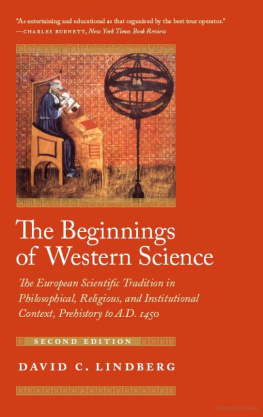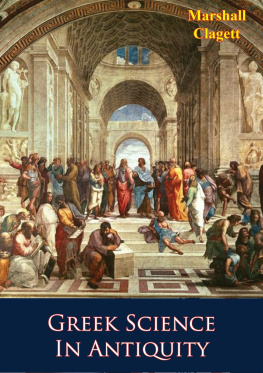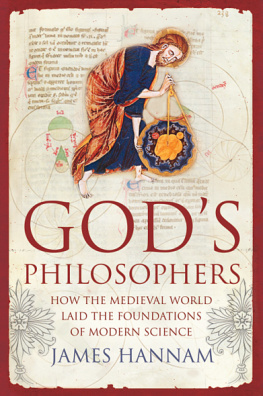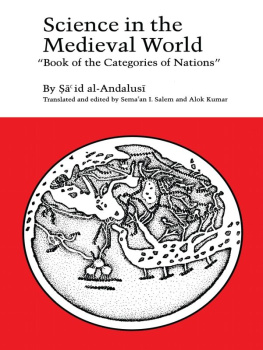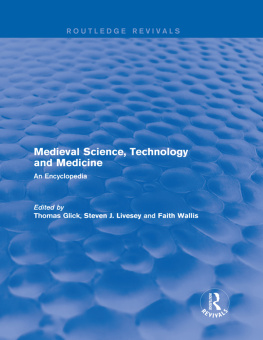Medieval Science
Volume 2
This volume in the highly respected Cambridge History of Science series is devoted to the history of science in the Middle Ages from the North Atlantic to the Indus Valley. Medieval science was once universally dismissed as nonexistent and sometimes it still is. This volume reveals the diversity of goals, contexts, and accomplishments in the study of nature during the Middle Ages. Organized by topic and culture, its essays by distinguished scholars offer the most comprehensive and up-to-date history of medieval science currently available. Intended to provide a balanced and inclusive treatment of the medieval world, contributors consider scientific learning and advancement in the cultures associated with the Arabic, Greek, Latin, and Hebrew languages. Scientists, historians, and other curious readers will all gain a new appreciation for the study of nature during an era that is often misunderstood.
David C. Lindberg is Hilldale Professor Emeritus of the History of Science and past director of the Institute for Research in the Humanities at the University of WisconsinMadison. He has written or edited a dozen books on topics in the history of medieval and early-modern science, including The Beginnings of Western Science (1992). He and Ronald L. Numbers have previously coedited God and Nature: Historical Essays on the Encounter between Christianity and Science (1986) and When Science and Christianity Meet (2003). A Fellow of the American Academy of Arts and Sciences, he has been a recipient of the Sarton Medal of the History of Science Society, of which he is also past president (19945).
Michael H. Shank is Professor of the History of Science at the University of WisconsinMadison. He is the author of Unless You Believe, You Shall Not Understand: Logic, University, and Society in Late Medieval Vienna (1988); the editor of The Scientific Enterprise in Antiquity and the Middle Ages: Readings from Isis (2000); the coeditor, with Peter Harrison and Ronald L. Numbers, of Wrestling with Nature: From Omens to Science (2011); and the author of numerous articles in edited collections and scholarly journals.
The Cambridge History of Science
General Editors
David C. Lindberg and Ronald L. Numbers
David C. Lindberg is Hilldale Professor Emeritus of the History of Science and past director of the Institute for Research in the Humanities at the University of WisconsinMadison. He has written or edited a dozen books on topics in the history of medieval and early-modern science, including The Beginnings of Western Science (1992). He and Ronald L. Numbers have previously coedited God and Nature: Historical Essays on the Encounter between Christianity and Science (1986) and When Science and Christianity Meet (2003). A Fellow of the American Academy of Arts and Sciences, he has been a recipient of the Sarton Medal of the History of Science Society, of which he is also past president (19945).
Ronald L. Numbers is Hilldale Professor of the History of Science and Medicine at the University of WisconsinMadison, where he has taught since 1974. A specialist in the history of science and medicine in the United States, he has written or edited more than two dozen books, including The Creationists (1992, 2006), Science and Christianity in Pulpit and Pew (2007), Galileo Goes to Jail and Other Myths about Science and Religion (ed.) (2009), and the forthcoming Science and the Americans . A Fellow of the American Academy of Arts and Sciences and a former editor of Isis , the flagship journal of the history of science, he has served as the president of the American Society of Church History (19992000), the History of Science Society (20001), and the International Union of History and Philosophy of Science/Division of History of Science and Technology (20059).
For a list of titles published in the series, please see .
The Cambridge History of Science
Medieval Science
Volume 2
Edited by
David C. Lindberg
Michael H. Shank
32 Avenue of the Americas, New York, NY 10013-2473, USA
Cambridge University Press is part of the University of Cambridge.
It furthers the University's mission by disseminating knowledge in the pursuit of education, learning, and research at the highest international levels of excellence.
www.cambridge.org
Information on this title: www.cambridge.org/9780521594486
Cambridge University Press 2013
This publication is in copyright. Subject to statutory exception and to the provisions of relevant collective licensing agreements,no reproduction of any part may take place without the written permission of Cambridge University Press.
First published 2013
Printed in the United States of America
A catalog record for this publication is available from the British Library.
Library of Congress Cataloging in Publication data
(Revised for volume 2)
The Cambridge history of science
p. cm.
Includes bibliographical references and indexes.
Contents: v. 2. Medieval science / edited by David C. Lindberg and Michael H. Shank
v. 3. Early modern science / edited by Katharine Park and Lorraine Daston
v. 4. Eighteenth-century science / edited by Roy Porter
v. 5. The modern physical and mathematical sciences / edited by Mary Jo Nye
v. 6. The modern biological and earth sciences / edited by Peter J. Bowler and John V. Pickstone
v. 7. The modern social sciences / edited by Theodore H. Porter and Dorothy Ross
1. Science History.I. Lindberg, David C.II. Numbers, Ronald L.
q125c32 2001
509dc21 2001025311
ISBN 978-0-521-59448-6 Hardback
Cambridge University Press has no responsibility for the persistence or accuracy of URLS for external or third-party Internet Web sites referred to in this publication and does not guarantee that any content on such Web sites is, or will remain, accurate or appropriate.
Contents
Michael h. shank and david c. lindberg
F. jamil ragep
J. l. berggren
Elaheh kheirandish
Robert g. morrison
Emilie savage-smith
Y. tzvi langermann
Anne tihon
Michael h. shank
Joan cadden
David c. lindberg
Stephen c. mc cluskey
Bruce S. Eastwood
Vivian Nutton
Charles Burnett
Charles Burnett
William R. Newman
Walter Roy Laird
Edward Grant
John North
David C. Lindberg and Katherine H. Tachau
A. George Molland
E. Jennifer Ashworth
David Woodward
Karen Meier Reeds and Tomomi Kinukawa
Danielle Jacquart
Katharine Park
George Ovitt
Illustrations
Notes on Contributors
E. Jennifer Ashworth Distinguished Professor Emerita at the University of Waterloo, was elected Fellow of the Royal Society of Canada in 1991. She has published extensively on medieval and post-medieval logic and philosophy of language, and her first book, Language and Logic in the Post-Medieval Period , was published in 1974. Her most recent book, Les thories de l'analogie du XIIe au XVIe sicle (2008), is based on the four Pierre Ablard lectures that she delivered at the Sorbonne in 2004. Since her retirement in 2005, she has returned to the United Kingdom.


